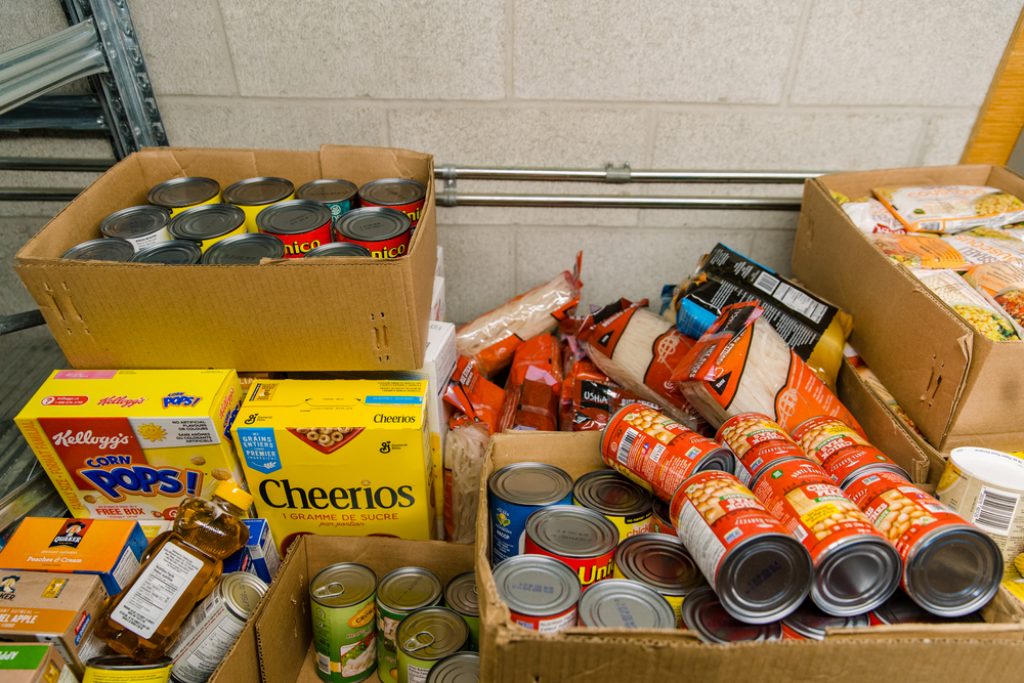Food manufacturers are cutting costs by selling smaller and less tasty products, according to a study by Which?
Shrinkflation is when brands reduce the size of established products, but keep the price the same. Skimpflation is when they downgrade a product’s ingredients.
Example of skimpflation cited by Which? include less meaty sausages and guacamole with less avocado.
Which products have been shrunk?
Listerine, PG Tips, Andrex and Bisto have all been perpetrators of ‘shrinkflation’.
Listerine Fresh Burst mouthwash shrunk from 600ml to 500ml. At Tesco it also went up in price by 52p – meaning shoppers paid 21% more for 17% less. Which? calculated that this equated to a price increase of 46%.
With PG Tips tea drinkers are now getting 22% less tea for 27% more money. Boxes of PG Tips Tasty Decaf Pyramid tea bags went from containing 180 bags to just 140 at a number of supermarkets.
Many stores also dropped the price (although not always proportionately), but at Ocado the price actually rose from £4 to £5.09 despite the size reduction. That’s a 64% cost increase per tea bag.
Other examples of shrinkflation include Andrex Classic Clean Flushable Washlets Moist Toilet Tissue Wipes – from 40 to 36 in a pack at Asda, Sainsbury’s and Tesco.
Bisto Best Chicken Gravy Granules were reduced in size from 250g to 230g at Asda and Morrisons, while Cadbury’s Brunch Chocolate Chip Bars were reduced from six to five in a pack at Asda, Morrisons, Ocado and Tesco.
The size of Lurpak Slightly Salted Butter was reduced in size from 225g to 180g at Morrisons and Sainsbury’s; McVitie’s Digestives Dark Chocolate Biscuits went from 433g to 400g at Morrisons and Tesco.
Which products are the worst for skimpflation?
Which? researchers found that shoppers are getting less banger for their buck with Tesco Finest sausages, which have had pork content reduced from 97% to 90%.
The consumer champion dubbed the reformulation of Sainsbury’s ‘Clotted Cream Rice Pudding’, in which the clotted cream has actually been replaced with whipping cream, meaning no clotted cream is used in the pudding at all, as “the most blatant of all.”
The product packaging was renamed but it was still listed as ‘Clotted Cream Rice Pudding’ online until Which? pointed it out to Sainsbury’s.
Meanwhile, Morrisons Guacamole (150g) went from 80% avocado to 77% and Morrisons The Best Lasagne Al Forno (400g) went from 30% beef to 26%.
Tesco Tex Mex Chicken Enchiladas (480g) were reduced from 27% chicken to 20% and Waitrose Butter Chicken Curry reduced from 47% chicken to 41%.
Which? pointed out that these changes have all come at a time when food inflation has soared. According to the Which? supermarket food inflation tracker, year-on-year price rises peaked last April at 17%. But while food price inflation has decreased since then (it was 9.1% in November), the fact that inflation is there at all means prices are still rising.
What does the food industry say?
Which? spoke to several manufacturers who all emphasised that production costs such as raw materials, transport and packaging had risen and that pricing was set by retailers.
A spokesperson for Arla, which makes Lurpak, said average prices had reduced proportionately: “Our research showed that the new pack sizes and price points were the most appealing to a greater proportion of shoppers.”
PG Tips manufacturer Lipton Teas said the average price of a PG Tips decaf tea bag fell 10% between January 2021 and January 2022.
Waitrose said: “Our focus is always on our customers and our new curry recipes performed better than the previous range in benchmarking tests. We’ve kept the same prices since this change and we continue to use industry-leading higher-welfare chicken from British farms across our entire ready meals range.”





